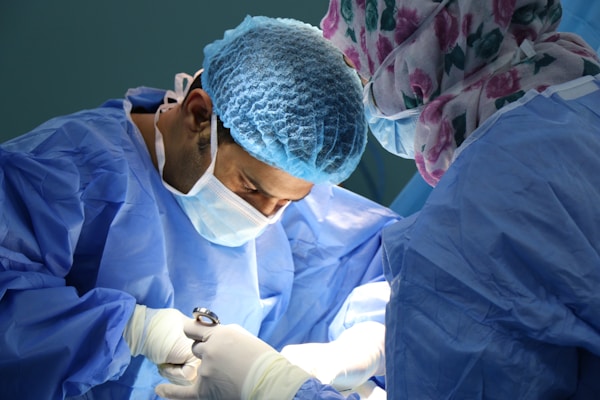One of the most important aspects of surgery is ensuring that the correct procedure is carried out on the correct patient. Unfortunately, surgical errors are not uncommon, with various estimates suggesting that they occur in 2–5% of all operations. The most common surgical errors include wrong site surgery, wrong procedure surgery, and retained foreign objects. Keep reading to learn more about the most common surgical errors and their implications, and if you are a victim of surgical error, be sure to research the best surgical error lawyer Chicago options or those in your city.
Leaving Foreign Objects in the Patient’s Body
Any object left inside a patient’s body following surgery is classified as a surgical error. This includes sponges, gauze, needles, and other medical supplies. While rare, these objects can cause serious complications, including infection, sepsis, and death. The consequences of leaving a foreign object in a patient’s body can be devastating. In some cases, the object may cause a laceration or perforation in the organ. In other cases, the object may cause an obstruction in a hollow organ, such as the stomach or intestine. This can lead to intestinal blockage, which can be life-threatening. If a foreign object is left in a patient, it should be removed as soon as possible. If the object is small and accessible, it may be removed through a small incision. If the object is large or inaccessible, surgery may be required to remove it.
Performing the Wrong Surgery

It is an unfortunate reality that surgeons can and do make mistakes. One type of surgical mistake is when a surgeon performs the wrong surgery. This is a particularly egregious error, as it can lead to serious complications and even death. There are a few different ways that a surgeon can perform the wrong surgery. One is when the surgeon operates on the wrong patient. This can happen when the surgeon fails to properly identify the patient before surgery or when the patient’s chart is not correctly updated. Another way a surgeon can perform the wrong surgery is when the surgeon operates on the wrong body part. This can happen when the surgeon is operating on the wrong side of the body or when the surgeon is operating on the wrong organ. The final way a surgeon can perform the wrong surgery is when the surgeon performs the wrong procedure. This can happen when the surgeon is not familiar with the surgery that was requested or when the surgeon performs a surgery that is not necessary.
Incorrectly Suturing Surgical Wounds
If a doctor or medical professional sutures a surgical wound improperly, it can result in medical malpractice. Improperly suturing a surgical wound can cause the wound to reopen, bleed, become infected, or cause other complications. If you have been injured as a result of an improperly sutured surgical wound, you may be able to file a lawsuit against the doctor or medical professional who sutured the wound. To prove that a doctor or medical professional committed medical malpractice by improperly suturing a surgical wound, you will need to show that the doctor or medical professional owed you a duty of care and that the doctor or medical professional breached that duty of care. If you have been injured as a result of an improperly sutured surgical wound, you should contact a personal injury attorney. An attorney can help you determine whether you have a case and can help you file a lawsuit against the doctor or medical professional who caused your injuries.
Failing to Properly Monitor the Patient Before, During, and After Surgery

Any surgical procedure carries some inherent risks, but when a patient’s safety is not properly monitored before, during, and after surgery, medical malpractice may have occurred. Preoperative care is critical to ensuring the safety of the patient. Physicians and nurses must take into account the patient’s health history, current medications, and allergies to determine what types of anesthesia and medications should be used during surgery. During surgery, the patient’s safety must be constantly monitored. The surgical team should be aware of any changes in the patient’s condition and take appropriate action to ensure the patient’s safety. After surgery, the patient’s safety must also be monitored. The patient should be closely monitored for signs of infection, bleeding, and other complications. If the patient experiences any problems after surgery, he or she should be immediately evaluated by a doctor. Failing to properly monitor the patient after surgery can result in serious injuries or death.
Overall, surgical errors are a serious problem. They can cause significant harm to patients, and in some cases, may even be fatal. It is important for surgeons to be aware of the most common surgical errors, so they can take steps to avoid them.

















